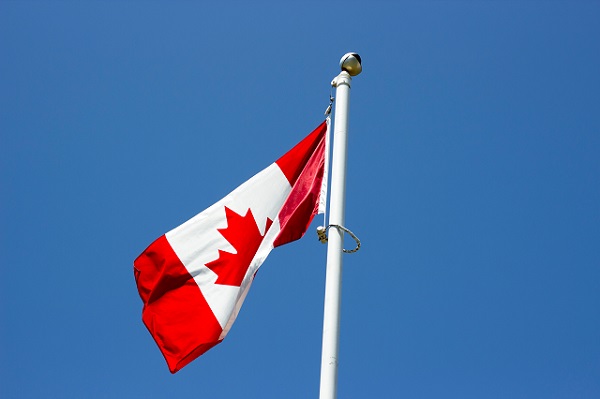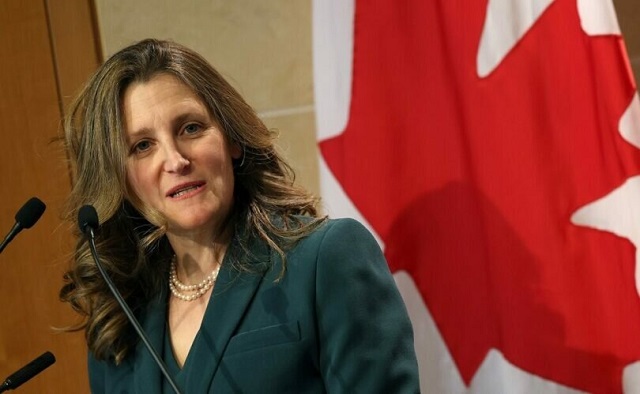National
Furey a major contrast with Trudeau on affordability
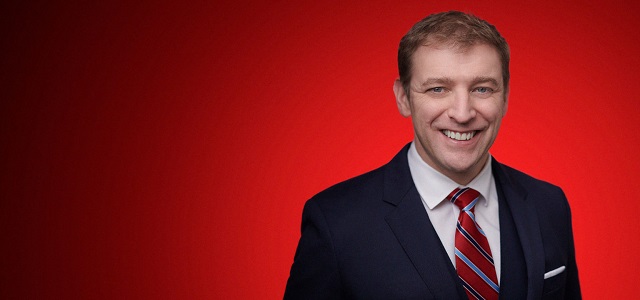
From the Canadian Taxpayers Federation
Author: Jay Goldberg
If Canadians want to find an example of a Liberal politician who cares about affordability, they should look to St. John’s, not Ottawa.
Time and time again, Newfoundland and Labrador Premier Andrew Furey has stood on the side of taxpayers.
The latest example is his government’s decision to extend its 8.05 cent per litre gas tax cut for another year.
The gas tax cut has been in place for 21 months and has saved the average two-car Newfoundland and Labrador family more than $800. Another 12 months of lower gas prices will see family savings soar to more than $1,000.
Furey first announced the temporary tax cut in June 2022 and has now extended it twice.
The Furey government has also spoken out strongly about the detrimental impact of the carbon tax on Newfoundlanders and Labradorians.
In criticizing the Trudeau government’s carbon tax late last year, Furey noted “there is no subway” for his constituents to take as an alternative to the ever-increasing costs of driving a car to get to work or to bring kids to school.
That comment was a jibe at the infamous remarks federal Finance Minister Chrystia Freeland made when encouraging Canadians who can’t afford to pay the carbon tax to bike or take transit.
Furey noted if rural Canadians don’t have other transit options – and many don’t – then “the fundamental premise on which the [carbon tax] is based is flawed.”
Furey was also a leader in calling on Trudeau to take the carbon tax off all home heating, noting repeatedly that heating one’s home in Canada in the winter is not optional.
Under pressure, Trudeau finally did so through a temporary suspension of the carbon tax on home heating oil, which is a popular method of home heating in Atlantic Canada, but not in other regions of the country.
To Furey’s credit, he continued to call on the federal government to offer relief to Canadians who don’t use furnace oil for home heating.
Juxtapose that against the policies of Prime Minister Justin Trudeau.
Without campaigning on it, Trudeau sprung a carbon tax on Canadians in 2019. He’s increased it every year since. And he plans to keep jacking it up every year until 2030.
Trudeau has tried to sell his policies by claiming most Canadians are getting more money back from carbon tax rebates than they pay in carbon taxes. Many of Trudeau’s allies have suggested that somehow the carbon tax actually is an affordability measure.
But the Parliamentary Budget Officer has laid out the truth: the average Canadian family is losing money from the carbon tax, big time.
The average Newfoundland and Labrador family lost $347 from the carbon tax last year, even after the rebates. That’s set to climb to $1,316 a year by 2030.
For years, Trudeau told us families would be better off with the carbon tax. But after pressure from Furey and other Atlantic Canadian politicians, he temporarily removed the carbon tax on home heating oil for the next three years.
If that’s not a mea culpa that the carbon tax makes life less affordable, then Santa Claus and the Easter Bunny must be real.
The broader contrast between Furey and Trudeau is their approach to cost of living. Furey looks at what’s taking cash out of families’ wallets – gas and carbon taxes – and tries to lessen that burden by fighting for lower taxes. Trudeau’s solution to make life more affordable appears to be more taxes, more spending and more debt.
The bottom line is that Trudeau, who is sinking in the polls and faces frustrated taxpayers from coast to coast, should learn a thing or two from Furey. Canadians want life to be more affordable, and that means lowering the tax burden, not increasing it.
Addictions
Why can’t we just say no?

From the Frontier Centre for Public Policy
Drug use and violence have become common place in hospitals. Drug-addicted patients openly smoke meth and fentanyl, and inject heroin. Dealers traffic illicit drugs. Nurses are harassed, forced to work amidst the toxic fumes from drugs and can’t confiscate weapons. In short, according to one nurse, “We’ve absolutely lost control.”
“Defining deviancy down” is a cultural philosophy that emerged in the United States during the 1990s.
It refers to society’s tendency to adjust its standards of deviancy “down,” so that behaviours which were once unacceptable become acceptable. Over time, this newly- acceptable behaviour can even become society’s norm.
Of course, the converse must also be true — society looks down on those who label social behaviours “wrong,” deeming them moralistic, judgemental or simply out of touch with the realities of modern life.
Thirty years later, this philosophy is entrenched in British Columbia politics and policies. The province has become a society that cannot say “no” to harmful or wrong behaviours related to drug use. It doesn’t matter if you view drug use as a medical issue, a law-and-order issue, or both – we have lost the ability to simply say “no” to harmful or wrong behaviour.
That much has become abundantly clear over the past two weeks as evidence mounts that BC’s experiment with decriminalization and safe supply of hard drugs is only making things worse.
A recently-leaked memo from BC’s Northern Health Authority shows the deleterious impact these measures have had on BC’s hospitals.
The memo instructs staff at the region’s hospitals to tolerate and not intervene with illegal drug use by patients. Apparently, staff should not be taking away any drugs or personal items like a knife or other weapons under four inches long. Staff cannot restrict visitors even if they are openly bringing illicit drugs into the hospital and conducting their drug transactions in the hallways.
The public was quite rightly outraged at the news and BC’s Health Minister Adrian Dix quickly attempted to contain the mess by saying that the memo was outdated and poorly worded.
But his facile excuses were quickly exposed by publication of the very clearly worded memo and by nurses from across the province who came forward to tell their stories of what is really happening in our hospitals.
The President of the BC Nurses Union, Adriane Gear, said the issue was “widespread” and “of significant magnitude.” She commented that the problems in hospitals spiked once the province decriminalized drugs. In a telling quote, she said, “Before there would be behaviours that just wouldn’t be tolerated, whereas now, because of decriminalization, it is being tolerated.”
Other nurses said the problem wasn’t limited to the Northern Health Authority. They came forward (both anonymously and openly) to say that drug use and violence have become common place in hospitals. Drug-addicted patients openly smoke meth and fentanyl, and inject heroin. Dealers traffic illicit drugs. Nurses are harassed, forced to work amidst the toxic fumes from drugs and can’t confiscate weapons. In short, according to one nurse, “We’ve absolutely lost control.”
People think that drug policies have no impact on those outside of drug circles – but what about those who have to share a room with a drug-smoking patient?
No wonder healthcare workers are demoralized and leaving in droves. Maybe it isn’t just related to the chaos of Covid.
The shibboleth of decriminalization faced further damage when Fiona Wilson, the deputy chief of Vancouver’s Police Department, testified before a federal Parliamentary committee to say that the policy has been a failure. There have been more negative impacts than positive, and no decreases in overdose deaths or the overdose rate. (If such data emerged from any other healthcare experiment, it would immediately be shut down).
Wison also confirmed that safe supply drugs are being re-directed to illegal markets and now account for 50% of safe supply drugs that are seized. Her words echoed those of BC’s nurses when she told the committee that the police, “have absolutely no authority to address the problem of drug use.”
Once Premier David Eby and Health Minister Adrian Dix stopped denying that drug use was occurring in hospitals, they continued their laissez-faire approach to illegal drugs with a plan to create “safe consumption sites” at hospitals. When that lacked public appeal, Mr. Dix said the province would establish a task force to study the issue.
What exactly needs to be studied?
The NDP government appears to be uninformed, at best, and dishonest, at worst. It has backed itself into a corner and is now taking frantic and even ludicrous steps to legitimize its experimental policy of decriminalization. The realities that show it is not working and is creating harm towards others and toward institutions that should be a haven for healing.
How quickly we have become a society that lacks the moral will – and the moral credibility – to just to say “no.”
Susan Martinuk is a Senior Fellow with the Frontier Centre for Public Policy and author of Patients at Risk: Exposing Canada’s Health-care Crisis.
COVID-19
Trudeau gov’t has paid out over $500k to employees denied COVID vaccine mandate exemptions
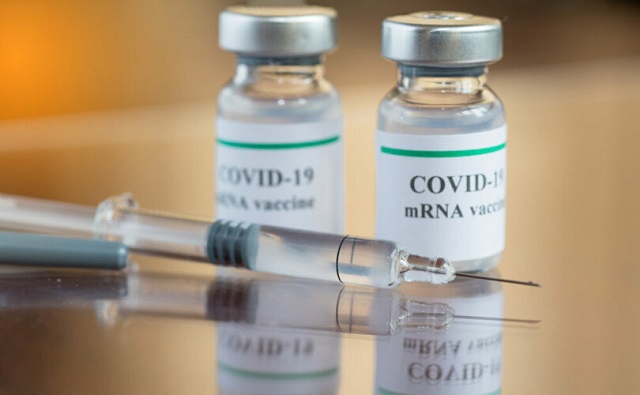
From LifeSiteNews
The Department of Health paid $177,991, the Department of Foreign affairs paid $88,223, the Correctional Service of Canada paid $65,694, and Statistics Canada paid $33,240
Federal managers have paid out over $500,000 in settlements to employees that were suspended under the Trudeau government’s COVID vaccine mandate.
According to information obtained April 24 by Blacklock’s Reporter, records have revealed that Canadian federal managers have paid a total of $509,746 in damages and compensation to employees who were denied vaccine mandate exemptions.
“What are the total expenditures on compensation, severance packages and settlements to employees who were impacted by the government’s requirement during the COVID-19 pandemic that federal public servants provide proof of vaccination?” Conservative MP Ted Falk had questioned.
According to the official numbers released by Blacklock’s, the Department of Health paid $177,991, the Department of Foreign affairs paid $88,223, the Correctional Service of Canada paid $65,694, and Statistics Canada paid $33,240.
The Department of National Defence further revealed that it compensated three employees with “damages under the Canadian Human Rights Act on grounds of discrimination based on religion.”
Beginning November 2021, Prime Minister Justin Trudeau’s government mandated that a total of 275,983 employees from the RCMP, military and main federal departments provide proof of vaccination as a condition of employment.
Those who failed to do so risked dismissal or suspension without pay. While there were provisions for medical and religious exemptions, these were rarely granted. According to internal information, at the time of the mandates 95 percent of employees had already received the COVID vaccine.
When the federal mandate was lifted in June 2022, 2,560 employees had been suspended without pay for refusing to show proof of vaccination.
Indeed, implementing the vaccine mandate for federal employees has proved costly for Canadian taxpayers as Trudeau budgeted $198 million to enforce the COVID jabs on federal employees.
Conservative MPs questioned why the cost of the mandate was so high and pressed for details as to what the funds were used for.
“Treasury Board officials told us it was for rapid testing purchases and distribution,” Conservative MP Kelly McCauley (Edmonton West) told the House of Commons in 2021.
“The Treasury Board website shows there are about 3,400 unvaccinated employees,” he added. “That works out to about $24,000 per employee for rapid testing.”
Additionally, the Trudeau government will likely have to pay out even more former employees due to ongoing lawsuits over the mandates.
In October, LifeSiteNews reported on how over 700 vaccine-free Canadians negatively affected by federal COVID jab dictates have banded together to file a multimillion-dollar class-action lawsuit against the Trudeau government.
Similarly, Canadian taxpayers have already paid over $6 million via Canada’s Vaccine Injury Program (VISP) to those injured by COVID injections, with some 2,000 claims remaining to be settled.
-

 Business2 days ago
Business2 days agoDon’t be fooled by high-speed rail
-

 Alberta2 days ago
Alberta2 days agoActivity-Based Hospital Funding in Alberta: Insights from Quebec and Australia
-

 Business2 days ago
Business2 days agoUN plastics plans are unscientific and unrealistic
-

 Business2 days ago
Business2 days agoTaxpayers criticize Trudeau and Ford for Honda deal
-
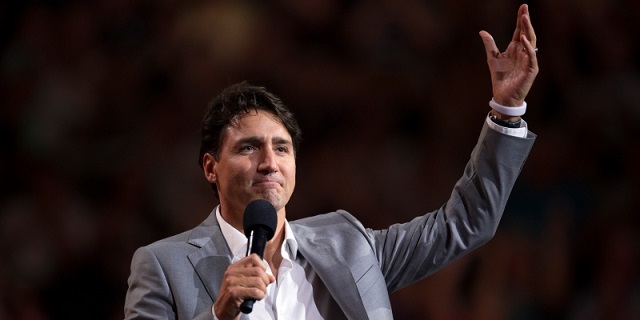
 Fraser Institute2 days ago
Fraser Institute2 days agoCanadians should decide what to do with their money—not politicians and bureaucrats
-

 Addictions2 days ago
Addictions2 days agoBritish Columbia should allow addicts to possess even more drugs, federal report suggests
-

 Alberta1 day ago
Alberta1 day agoPolitical parties will be part of municipal elections in Edmonton and Calgary pilot projects
-
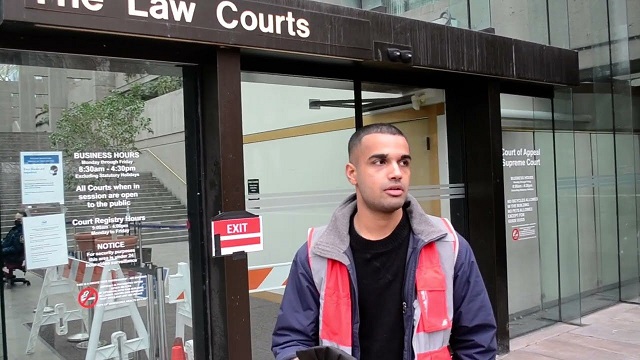
 Bruce Dowbiggin1 day ago
Bruce Dowbiggin1 day agoCome For The Graduate Studies, Stay For The Revolution

